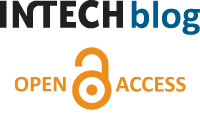 There’s been much talk lately about peer review techniques in Open Access publishing, and special attention was paid to it at Scholarly Kitchen. Yet another hard question is posed upon Open Access advocates who are to regulate the new and growing system of open data. The information road is overflown and we need to decide where to put traffic lights if we are to put any at all.
There’s been much talk lately about peer review techniques in Open Access publishing, and special attention was paid to it at Scholarly Kitchen. Yet another hard question is posed upon Open Access advocates who are to regulate the new and growing system of open data. The information road is overflown and we need to decide where to put traffic lights if we are to put any at all.
Up Against the Wall
The classical peer-review has been recognized as faulty, many times. At Scholarly Kitchen they even characterized it as Ouroboros, the snake eating its own tail, with real objectives lost from the sight, and with reviewers inescapably – biased. Can any editor be such a visionary and stand above the current opinion. Can he anticipate what will be useful to readers, what will prove as novelty, or he just crosses papers out on will? Being a researcher himself, a reviewer is likely to hold favor with researchers from his group, and keep the outsiders – out. The old catch of reputation needed before you start building one seems unlockable. If there is no a supervisor to hold you by the hand, the road of science may prove a bumpy and a short one.
Those Who Can, Do. Those Who Can’t – Take Credit?
The idea of ensuring that their peer-reviewers are competent came to Fox and Petchey when they proposed the privatizing of peer-review and the creation of PubCred bank. For each article reviewed, a researcher would be awarded with one PubCred. The idea seems fine but it doesn’t lose the catch for those who are new in the field. Furthermore, in this case, they argue at Scholarly Kitchen, decisions to publish are dictated by the balance on one’s account. Researchers could start reviewing out of necessity, not because of the will or the wit. However, the idea of coins involved, even if they are virtual ones, seems to invoke security. But do we need virtual banks? Who would own them, who would fund them, who would control them? The idea of credits doesn’t seem to change the traditional model much but it does make the control system less transparent.
One On the Right is On the Left
The newest trend is the technique which seems to avoid rejections since rejections cost money. In order not to stand in the way of one researcher’s work, the idea is to simply redirect it. A work not suitable for one journal may be perfect for another one, less prestigious, with lower article processing fees but this may prove as yet another unfair recycling method. Some journals, in order to object to this type of labeling, accept only papers which were rejected elsewhere. However, the information at least stays “on the road” and can be found through selection. Perhaps redirecting is the best hunch so far in peer review, only it should lose the prestige factor.
Nothing Gets Crossed Out?
One way to lose the faults of peer review is to lose the peer review completely. Post-publication peer review is already tested with some journals. Everything is put on the web and left for the crowd to filter it. This could work if we manage to re-educate readers to value mass discussion over the opinion of the chosen few. But is this possible with petabytes of information circulating on the web? Or is the anarchy of data the only possible solution?
It seems like we have a whole new society to regulate. Where will we go? Will we direct it the same as we do direct our everyday life or is this a good chance to start anew? Once again we are presented with solely grains of sand (petabytes of data) and the wide sea shore, and it will be interesting to watch the sand castles shape (the chosen data). The data civilization with data scientists could be our last chance for utopia and ordered chaos if we manage to escape from the comfort of coins and bankers and well, cosmos.
(Peer Reviev Comic by Nick Kim, http://www.nearingzero.net)











So, what peer review direction Intech follows?
Hi, Robert.
For our books: Main editor peer review: Only one (or two) main editor(s) review and select all the submitted articles.
For our journals: Double-blind peer review: Reviewers are unaware of the identity of the authors, and authors are also unaware of the identity of reviewers